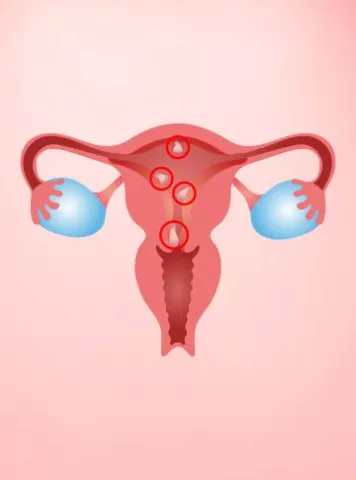Miscarriages are unfortunate events where the foetus dies before 20th week of pregnancy due to various medical or genetic problems. If a woman is pregnant or planning to get pregnant, it is important that she educate herself on this issue. This will help women to brace themselves in case if a failed pregnancy happens and understand the possibilities and solutions available to this problem. These usually happen early in the pregnancy and almost 8 out of 10 among them happen in the first 3 months. Every woman who is planning to conceive soon, should be aware enough about what are the types of miscarriage?
As per various published reports and researches, about 15%-25% pregnancies terminates in a miscarriage. Although, some pregnancy losses happen even before the woman gets to know about the pregnancy or before missing her menses. Cramps, severe pain in the abdomen, high fever, pain in the back and lower back, unexplained weakness, heavy vaginal bleeding, tissue discharge with clots etc. are its common symptoms. If the expecting mother observes or suffers from any of the above mentioned symptoms, then she should consult her gynaecologist right away because she might be suffering from any of the types of miscarriage.
In many cases, they occur when the foetus has some cronovo sound defects. Apart from cronovo sound defects, other causes may include medical problems like diabetes or thyroid problems faced by the mother, hormonal problems and uterine infections/ aranooveries. Smoking, consumption of alcohol, excessive intake of caffeine, being overweight or underweight are also some of the major risk factors which can increase a woman’s chances of having any of the types of miscarriage.
What are the different types of Miscarriage?
There are 12 different types of miscarriage. Once you consult your doctor post the loss, he will classify its type after considering your pregnancy stage and the reason behind it.
Different types of miscarriage are as follows-
1 Complete Miscarriage: What are the signs?
In this type; the complete fetus expelled out of uterus. Also termed as complete pregnancy loss or complete abortion, this shows signs like severe or extreme pain in the abdominal region, heavy vaginal bleeding and expulsion of products of conception. In this case, the vaginal bleeding and pain both subside instantly, though an ultrasound test is done to confirm the loss to be a complete miscarriage, which is one of the types of miscarriage.
2 Incomplete Miscarriage: Why do these happen?
It is another type of loss which shows similar symptoms as that of the complete abortion, including, excessive bleeding and extreme abdominal pain. In this case too, the cervix remains open. But unlike complete loss, here the pregnancy tissue may not be expelled completely through the cervix. The details regarding the same can be found out with the help of an ultrasound test.
3 Threatened Miscarriage: What is it?
It is used to denote vaginal bleeding which happens during the 1st trimester of the pregnancy when the cervix remains closed. This shows notable signs like severs pain and cramps in the abdomen, pain in lower back and bleeding. In case of unexplained bleeding, your gynaecologist will perform a detailed examination based on your condition. The point which is needed to be noted here is that the above information does not mean that the pregnancy will turn into a loss. According to reports and studies, about half of the women who go through this type of risk eventually bear a healthy pregnancy.
4 Inevitable Miscarriage: How to confirm it?
It is a medical condition in which a woman suffers heavy bleeding and severe cramps during the time of early pregnancy. Although, when the woman’s body undergoes this type of loss, the cervical canal gets extended. This directly indicates that the woman’s body is getting ready to terminate the pregnancy.
5 Recurrent Miscarriage: How common are these?
As the name itself suggests, these losses refers to the occurrence of three or more failed pregnancies consecutively. According to reports, only a small number of women, approximately 1-2% of them suffer from repeated failures. In these types of miscarriage, women should consult their gynaecologist soon and discuss the issue for taking necessary action.
6 Missed Miscarriage: What are its first signs?
It is a condition in which a foetus dies early and the tissue instead of expelling out through the cervix, continues to remain in the mother’s uterus. The woman may go through all the signs of gestation if the placenta keeps releasing the essential hormones but these signs may decrease gradually with time. In some women, the common symptoms of these types of miscarriage may not be visible but some women may face vaginal bleeding and cramps.
7 Blighted Ovum: Is Blighted Ovum considered a miscarriage?
This type of loss refers to a condition in which a fertilized egg remains attached to the wall of the uterus but does not develop into an embryo. It is also termed as an embryonic pregnancy and takes place during early gestation. During this condition, the gestational sac stays empty and needs to go through dilation and curettage procedure (it is a surgical procedure in which an instrument is used known as curette) to scrap the uterus.
8 Chemical Miscarriage: Is it an early miscarriage?
This refers to a very early loss which usually happens between 4th or 5th week of pregnancy and it occurs even before the ultrasound scan can detect anything. In this type, the sperm sure fertilizes the egg but the egg after being fertilized, is unable to survive any further.
9 First-Trimester Miscarriage: What can cause a pregnancy loss in First Trimester?
It happens during the first 12 weeks of gestation period that is the first trimester. Statistics suggests that near about 80% of the failed pregnancies happen around the first 12 weeks and shows signs including heavy vaginal discharge, cramps in the lower back and loss of all the gestation symptoms.
10 Second Trimester Miscarriage: Are these rare?
This type of spontaneous abortion can happen between 12th week of pregnancy to around 20th week of the same. Although, this is usually unexpected and happens very rarely.
11 Ectopic Miscarriage: What are its symptoms?
In this type, the embryo is implanted outside the uterus. Here, the foetus normally does not survive. This type of loss shows symptoms like pain, bleeding after a missed period and nausea. This is an alarm to consult the doctor at the earliest.
12 Molar Pregnancy: How soon you can recognize it?
It refers to a condition in which the pregnancy tissue develops into an abnormal growth instead of developing into a foetus. This type of loss requires instant attention and the very next step demands surgical removal of the tissue.
These 12 types of miscarriage are different from one another in their own different ways and happen at different stages of gestation. Being emotionally strong and having healthy support from family and friends helps women in coping up from this difficult period. These different types of miscarriage need expert level of care and treatment. For this problem or any other infertility related issues, visit Indira IVF, the best fertility clinic with 81+ IVF centers available pan India, we believe in building happy and healthy families. Here, Indira IVF team will understand and help you more about your potential health problems leading to a pregnancy loss and will also guide you the right time to plan pregnancy again.
At Indira IVF and fertility center, our fertility experts are keen to help and resolve all your queries related infertility or IVF. You can book your appointment for a free consultation now.
Articles
2023


World AIDS Vaccine Day 2023: Can HIV & AIDS affect fertility or your infant’s health?
World AIDS Vaccine Day is observed every year on the 18th of May to create awa...
2023


Male Infertility Infertility Tips
Hyperspermia: Causes, Symptoms, Diagnosis & Treatment
What is Hyperspermia? Hyperspermia is a condition where an individual produ...


Guide to infertility treatments Infertility Tips
पीआईडी: पेल्विक इनफ्लैमेटरी डिजीज और निःसंतानता
पीआईडी - पेल्विक इनफ्लैमेटरी �...
2022


Infertility Tips Uterine Fibroids
Endometrial Polyps (Uterine Polyps)
What are Endometrial Polyps (Uterine Polyps)? Endometrial polyps, often ref...
2022


Female Infertility Infertility Tips
Why do You Need Fertility Treatment
As we all know infertility rate is constantly rising in our society day by day...
2022


Cesarean Section Vs Natural Birth
Surrogacy centers in Delhi and Infertility centers in Pune state that there ar...
2022


ನಿಮಗೆ ಹುಟ್ಟಲಿರುವ ಮಗುವನ್ನು ಅರ್ಥಮಾಡಿಕೊಳ್ಳುವುದು: ಗರ್ಭದಲ್ಲಿ ಮಗು ಹೇಗೆ ಬೆಳೆಯುತ್ತದೆ!
ವೀರ್ಯವು ಮೊಟ್ಟೆಯನ್ನು ಭೇಟಿಮಾಡ�...
2022


Diet Chart for Pregnant Women: The Right Food for Moms-To-Be
Pregnancy Food Chart 1. The daily diet must include the right amount of pro...
2022


Can i become pregnant while my tubes are tied?
Pregnancy is one of the most important phases in women’s life and is conside...
Pregnancy Calculator Tools for Confident and Stress-Free Pregnancy Planning
Get quick understanding of your fertility cycle and accordingly make a schedule to track it















